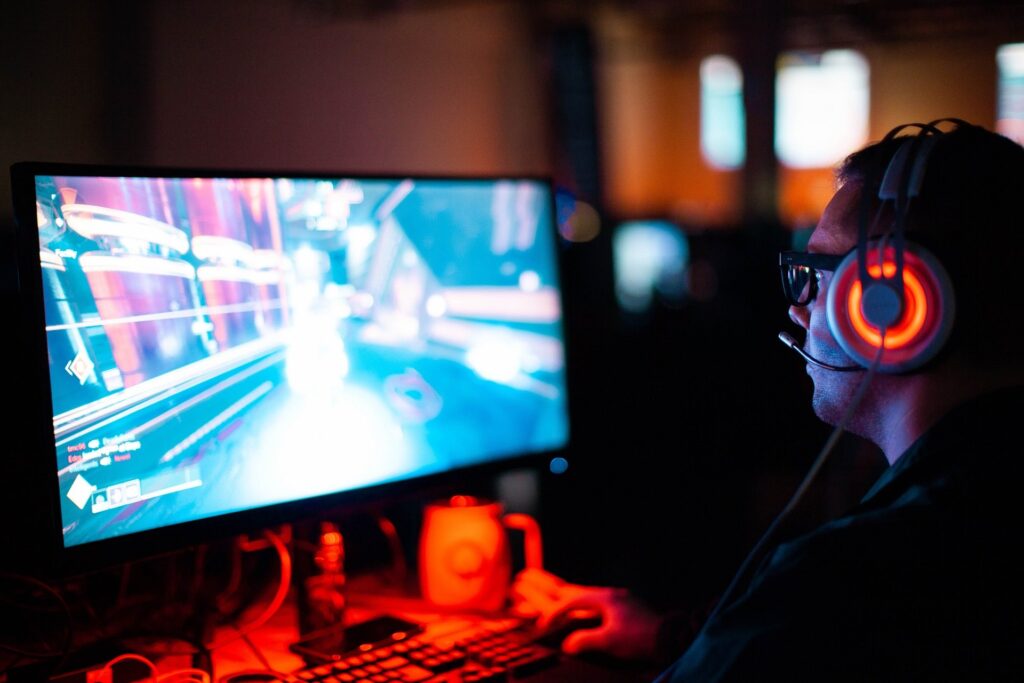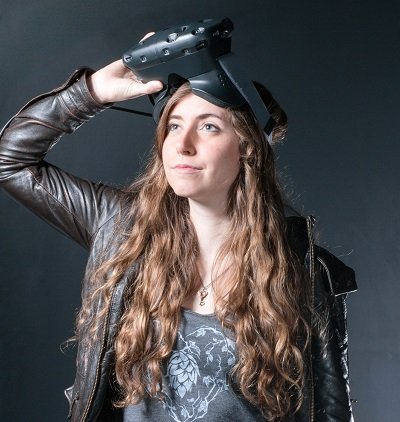
Global games publishing brand My.Games has launched an international survey seeking to gather information about the state of game players’ mental health, especially as it relates to the ongoing COVID-19 pandemic. The survey was built with the support of mental health nonprofit Take This, the Fair Play Alliance, and the International Game Developers Association (IGDA), an organization dedicated to the well-being of the industry’s workers.
According to Elena Grigoryan, chief marketing officer for My.Games, the survey is an attempt to study mental health trends in the games business in an effort to create a more welcoming environment.
“With the pandemic, online communication is the main way we stay connected with friends and family,” Grigoryan told GameDaily. “More than ever, people have flocked to video games to socialize. Due to their immersion, games can bring out our emotions more than any other entertainment medium, and these emotions, especially now, are often shared with each other. Unfortunately, these emotions are not always positive, and the anonymity of the internet environment allows for emotional expression without consequences.”
This focus on communication within games highlights another important core tenant of My.Games’ survey: cyberbullying. The pandemic has already exacerbated feelings of isolation experienced by those who suffer from depression and anxiety, and with video games becoming a primary source of entertainment during quarantine efforts, in-game communication takes on increased significance. The trouble with this conceit is that the games space is notorious for vitriol and harassment.
“We want to better understand how often players face cyberbullying and harassment, and how the current year has affected this,” Grigoryan explained. “As a company with a large number of online games, and a large audience of players, we feel responsible for supporting a safe and positive game environment. We want to better study this problem so that we can be part of the solution to improving online communities for all going forward.”
For Eve Crevoshay, executive director of Take This, the importance of such a survey cannot be overstated.
“Mental health awareness, literacy, and normalization literally saves lives, because it helps people understand their experience, give a name to it, and seek out the support that they need–whether that’s community, therapy, medication, self-care, or a combination of those things. That’s why Take This exists,” Crevoshay told GameDaily.
People who enjoy games, Crevoshay said, are already up against a perception that they are isolated and “antisocial,” a stigma exacerbated by the negative reputation of many online communities. In today’s pandemic-stricken environment, when many players are emotionally vulnerable, instances of cyberbullying and online harassment are more dangerous than ever before.
Dr. Rachel Kowert, research director at Take This, recently published an essay examining the relationship between mental health and the toxic nature of gamer culture, as well as the anger that has come to characterize many gaming communities.
In her essay, Dr. Kowert correlates the abhorrent behavior of such communities to the evolution of the term “gamer,” which has taken on a zealous nature in recent years. The abhorrent qualities of the “gamer” community are perpetuated by a desire to feel a sense of belonging on the part of many players who suffer from mental health issues; in order to fit in, they will engage in the often racist and bigoted behavior that has come to define this group. Dr. Kowert calls this phenomenon “dark participation,” a term coined by University of Munster professor Thorsten Quandt.
“People who play games face stigma from the general public, and they face additional challenges due to the pervasive experience of various forms of dark participation–everything from voice harassment to doxxing to problematic play,” Crevoshay explained. “In this environment, it’s really important to give people who play games support in the form of validation, real tools for addressing their needs, and a buttress against negative attitudes from the press and general public.”
To that end, the My.Games survey seeks to identify the major issues that help maintain this perception, and increase the public’s awareness of such issues. Further, COVID-19 is as much a mental health epidemic as it is a physical one, and Crevoshay said that experts will need as much data as possible if they hope to address the emotional damage done by the pandemic.
Today, the use of video games as a tool for communication amid quarantine efforts is directly at odds with the antagonistic qualities of the “gamer” subgroup. To that end, the IGDA hopes that by partnering with My.Games it can help illuminate the unifying potential of the world’s most popular form of entertainment.

“Mental health is important across all populations, but games are a powerful tool to provide empathy and connect with others,” IGDA executive director Renee Gittins told GameDaily. “Though online environments with anonymity can spark harassment, these virtual worlds can also connect people with others and the resources they need. People from all walks of life enjoy video games, so we hope this study will be able to help many.”
It was the shared desire to improve the games business that connected the IGDA and My.Games.
“It is our mission to support and empower game developers around the world in achieving fulfilling and sustainable careers, and the mental health of both developers and their players is a core part of that mission,” Gittins explained.
Gittins said that the IGDA’s role in the survey is largely concerned with distribution. The organization is an outspoken proponent for workers’ rights in the games industry, a stance that encompasses the mental well-being of those who make and enjoy games. The IGDA’s position as a prominent and well-connected entity makes it an ideal vehicle for connecting developers with the survey.
Gittins hopes that the survey results in increased awareness of mental health in the games industry, and leads to more concentrated efforts to address problems on that front.
“We hope to foster both awareness of mental health issues and to use this knowledge to inform the creation and expansion of programs and initiatives to provide better mental health support and to reduce toxicity within the world of games,” she said.
For Grigoryan, My.Games’ track record of supporting positive mental health makes it an ideal vehicle for such a survey. As a company, My.Games has in place a number of programs aimed at ensuring employees have access to the tools they need.
“Earlier this year we ran an initiative to support mental health charities by donating free advertising to charity partners to support Mental Health Week in the UK,” Grigoryan said. “Additionally, we have full-time psychologists for our employees, and a number of HR activities aimed at supporting our employees’ mental health in connection with the pandemic.”
The COVID-19 pandemic has wreaked untold havoc on the planet, and it’s not surprising that our collective mental health has seen a decline as a result. My.Games’ survey is an admirable effort to understand this impact and provide the resources needed to address the fallout. The effects of COVID-19 are sure to be felt for years, so it’s important for researchers to begin understanding the best course of action as soon as possible. To that end, Grigoryan is calling on the industry at large to join My.Games’ efforts in studying this topic.
“My.Games will be sharing the results of this survey, and would like to work with the global game community to come up with the next steps in creating a comfortable environment, based on the principles of respect and mutual support,” Grigoryan said.
If you or someone you know is suffering from mental health issues, please reach out to the proper specialists. There is a very useful page on the Take This site that can serve as an invaluable resource in this regard.
Sam, the Editor-in-Chief of GameDaily.biz, is a former freelance game reporter. He's been seen at IGN, PCGamesN, PCGamer, Unwinnable, and many more. When not writing about games, he is most likely taking care of his two dogs or pretending to know a lot about artisan coffee. Get in touch with Sam by emailing him at sdesatoff@rektglobal.com or follow him on Twitter.
 GameDaily.biz © 2025 | All Rights Reserved.
GameDaily.biz © 2025 | All Rights Reserved.